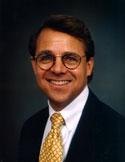Thank Goodness for the Bill of Rights!

by Jacob G. Hornberger
April/May 2002
Defense Secretary Donald Rumsfeld’s recent admission that a U.S. raid in Afghanistan mistakenly killed 16 innocent people suggests how grateful Americans should be that their ancestors insisted on the inclusion of a Bill of Rights as a condition of adopting the U.S. Constitution. While the U.S. raiders were convinced that the victims of the raid were members of the Taliban or al-Qaeda, they actually turned out to be anti-Taliban guerrillas loyal to the new U.S.-installed Afghan government.
Acknowledging that the deaths were “unfortunate” and denying prisoners’ claims that they were kicked and beaten by U.S. forces, Rumsfeld explained that military action in Afghanistan is sometimes “untidy.”
But it would be incorrect to characterize that military action as an unfortunate part of war. Upon the overthrow of the Taliban regime and the installation of a new government friendly to the United States, the U.S. government’s role in Afghanistan was converted from one of a war combatant to one of a domestic police force, either as an agent of the new Afghan government or as an independent police force operating with the jurisdiction of a foreign nation.
That is, under the newly installed Afghan regime, the U.S. government’s role in seeking suspected terrorists in Afghanistan as part of its “war on terrorism,” including the most recent action in which several U.S. servicemen have been killed or wounded, is no different in principle from its role in seeking suspected drug dealers in Peru as part of its “war on drugs.”
There is one big difference, however, between operations in which federal police are seeking suspected criminals overseas and those carried out here in the United States: In overseas police operations, U.S. forces are not constrained by the U.S. Constitution and specifically by the due process provisions of the Bill of Rights, as they are when seeking suspected criminals here in the United States.
That lack of constitutional constraint enables U.S. police forces operating overseas to shoot or bomb first and ask questions later when trying to apprehend those they “know” are guilty—such as the innocent missionary and her child who were mistakenly killed in Peru last year as part of the U.S. government’s “war on drugs” and the innocent people mistakenly killed in Afghanistan as part of its “war on terrorism.”
So while it’s true that warfare is sometimes untidy, as Secretary Rumsfeld says it’s also true that police work is sometimes untidy, especially when the police are operating outside the constraints our Founders placed on them when they are trying to apprehend suspected criminals.
When our Founders proposed the Constitution (and the new federal government) to the American people in 1787, many people objected that the document did not contain express guarantees of due process of law and protection of fundamental liberties. Those who advocated the adoption of the Constitution responded that there was nothing to fear because the powers of federal officials would be limited to those enumerated in the original document. Since those powers didn’t include the power to deprive a person of fundamental liberties or due process of law, their argument went, there was no reason to have an express prohibition on the exercise of such power.
That wasn’t good enough for the American people. They understood the nature of government and they knew their history. They knew that the federal government would inevitably attract people who, even with the best of intentions, would run roughshod over their liberties if there were no express constitutional provisions prohibiting them from doing so.
How right our ancestors turned out to be! When we see how our federal police today operate when they are not constrained by the Constitution, we are able to more deeply appreciate the wisdom of our ancestors in insisting on the protections outlined in the Bill of Rights as a condition for permitting the federal government to come into existence.
Mr. Hornberger is founder and president of The Future of Freedom Foundation (www.fff.org.) and co-editor of The Case for Free Trade and Open Immigration.
by Jacob G. Hornberger
Copyright © 2002 The Multiracial Activist. All rights reserved.

